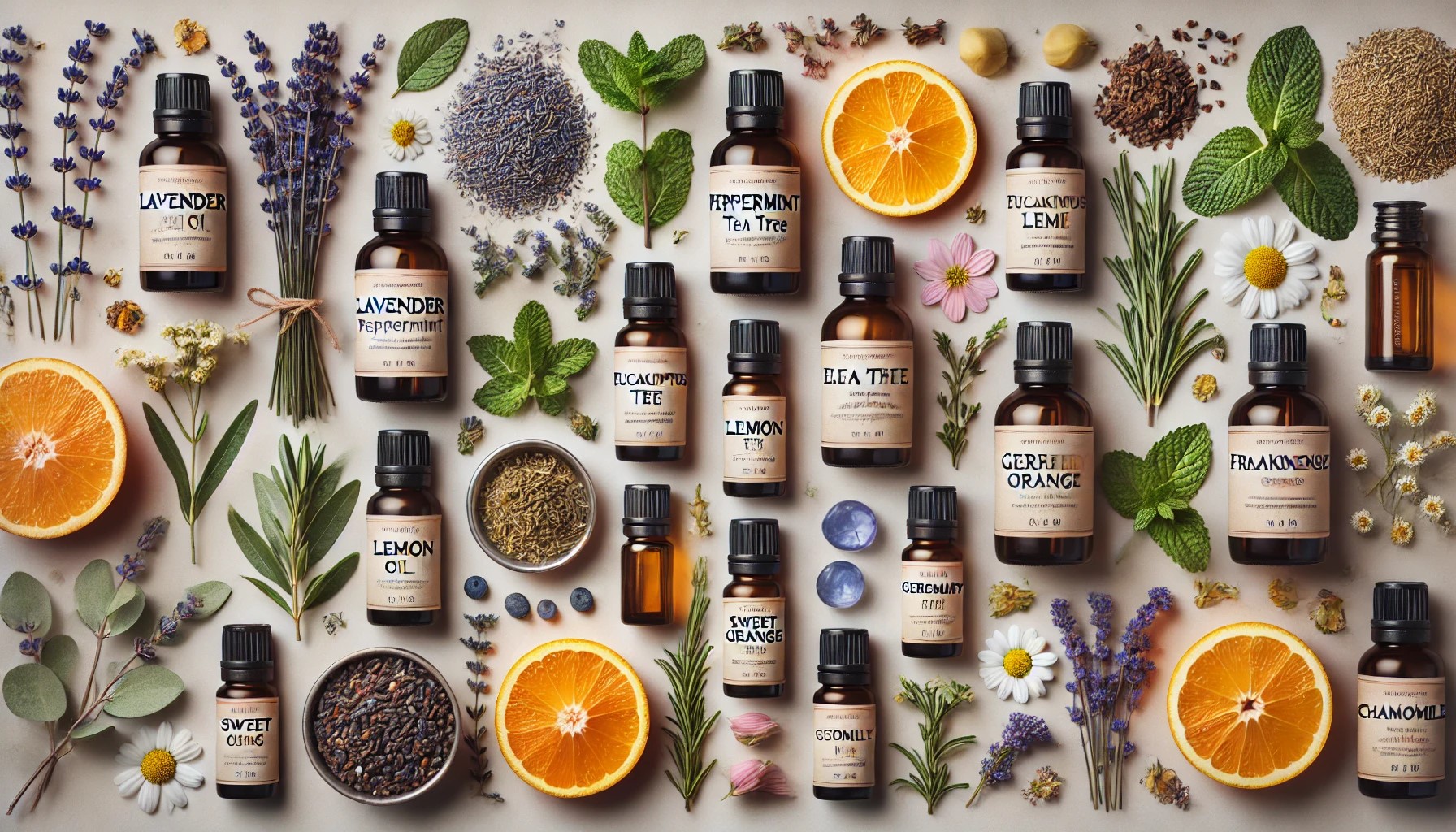
Aromatherapy is a powerful natural therapy that taps into the healing properties of essential oils to promote wellness for the mind, body, and spirit. Whether you're just starting out or looking to build your first collection, understanding the foundational oils is key. These top 10 essential oils offer a versatile and accessible entry point for beginners — each with its own unique benefits and uses.
Essential Oils
1. Lavender (Lavandula angustifolia)
Best for: Relaxation, sleep, and skin healing
Lavender is often considered the "gateway oil" to aromatherapy, and for good reason. Its calming floral aroma soothes anxiety, promotes restful sleep, and supports skin health. Use a few drops in a diffuser before bed or mix with a carrier oil to help soothe insect bites, burns, and minor cuts.
2. Peppermint (Mentha piperita)
Best for: Energy, headaches, and digestion
Refreshing and invigorating, peppermint essential oil is known for its cooling properties and ability to relieve tension headaches and nausea. A diluted application to the temples can ease head tension, while inhaling the scent can enhance alertness and focus
3. Tea Tree (Melaleuca alternifolia)
Best for: Immune support, acne, and fungal infections
A staple in natural first aid kits, tea tree oil is a potent antibacterial, antiviral, and antifungal agent. It’s widely used for acne-prone skin, dandruff, and athlete's foot. Add a drop to a cotton bud to treat blemishes or mix into a homemade natural cleaning spray.
4. Eucalyptus (Eucalyptus globulus or radiata)
Best for: Respiratory support and congestion
With its sharp, fresh scent, eucalyptus is a go-to oil for clearing the sinuses and easing respiratory issues. Perfect during cold and flu season, it can be diffused or used in a steam inhalation to open airways and relieve congestion.
5. Lemon (Citrus limon)
Best for: Mood uplift, cleaning, and detox
Bright, citrusy, and energising, lemon essential oil is a natural disinfectant and mood lifter. It cuts through grease, freshens indoor air, and can help improve concentration. Try it in a homemade kitchen cleaner or diffuse it for a burst of sunshine indoors.
6. Frankincense (Boswellia carterii)
Best for: Meditation, stress relief, and skin regeneration
Known as the “king of oils,” frankincense has been used in spiritual rituals for centuries. Its grounding aroma supports deep breathing and emotional balance, making it excellent for meditation. It’s also revered for anti-aging benefits when added to facial oils or creams.
7. Sweet Orange (Citrus sinensis)
Best for: Joy, calm, and child-friendly blends
Gentle, cheerful, and slightly sweet, sweet orange oil brings warmth and light to any blend. It’s safe for children and blends well with other oils like lavender or cinnamon. Use it to calm nerves, uplift your mood, or freshen a room naturally.
8. Rosemary (Rosmarinus officinalis)
Best for: Mental clarity, hair care, and pain relief
Rosemary stimulates both the mind and body. Known for boosting memory and mental focus, it’s also used in hair care for promoting hair growth and scalp health. Massage into sore muscles or joints with a carrier oil for natural relief.
9. Geranium (Pelargonium graveolens)
Best for: Hormonal balance, skincare, and emotional wellness
Floral, rosy, and slightly herbal, geranium is a fantastic all-rounder for women’s health. It supports hormonal balance, reduces stress, and improves skin tone. It’s often added to skincare routines to balance oil production and soothe inflammation.
10. Chamomile (Roman or German)
Best for: Calm, sleep, and sensitive skin
Roman chamomile is gentle enough for children and extremely soothing for emotional stress and skin irritation. It pairs beautifully with lavender for a bedtime blend and is ideal for those with sensitive skin conditions like eczema.
How to Use Essential Oils Safely as a Beginner
- Dilution is key: Always dilute essential oils with a carrier oil (like jojoba, almond, or coconut oil) before applying to the skin.
- Diffusing: Use 4–6 drops in a diffuser for 30–60 minutes to enjoy aromatic benefits.
- Patch testing: Always test a new oil on a small area of skin before using more widely.
- Avoid ingestion: Do not take essential oils internally unless under the supervision of a qualified professional.
“It doesn’t get much greener than essential oils: when used correctly, they are among Mother Nature’s most potent remedies.”
― Amy Leigh Mercree, Essential Oils Handbook: Recipes for Natural Living
Final Thoughts
Essential oils are nature’s concentrated gifts, and when used with respect and knowledge, they can support physical, mental, and emotional wellbeing. These ten oils form a solid foundation for any aromatherapy beginner, offering a wide range of uses and benefits. As you explore each one, take time to notice how it affects your mood, energy, and overall health — and let that be your guide.
For more tips, blends, and guidance on using essential oils safely and effectively, be sure to check out our resources here at CambridgeAromatherapy.com.